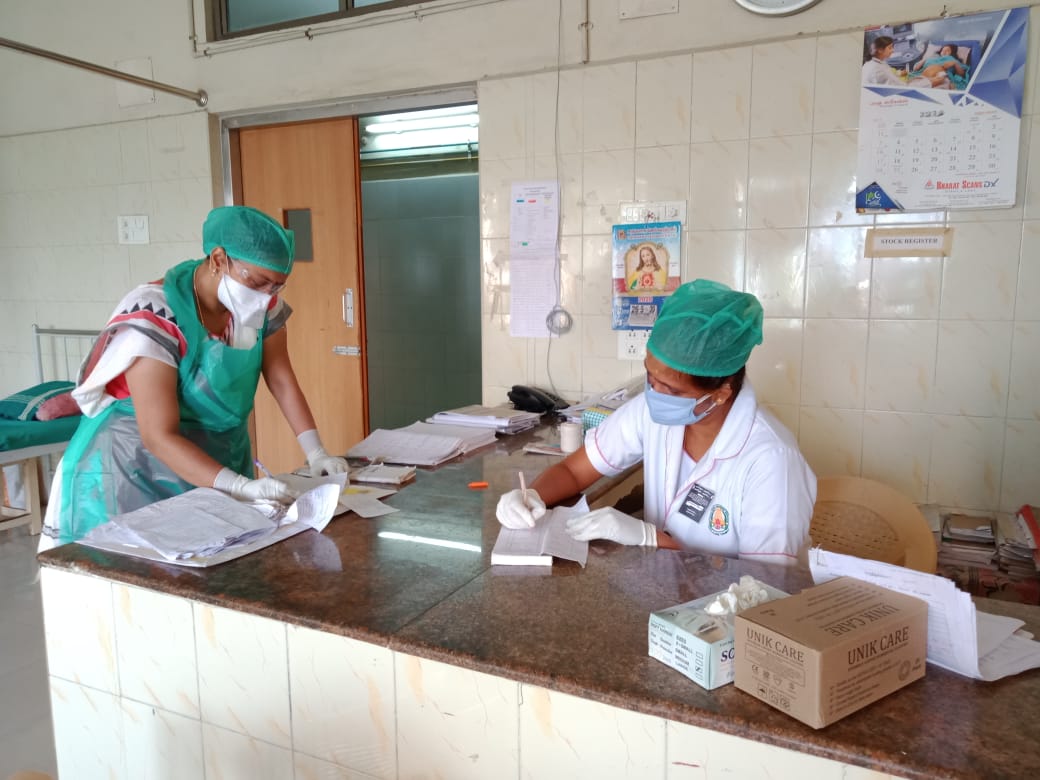
Temporary nurses wear black badges to work, seek regular jobs, better pay

Meenakshi (name changed), a nurse attired in white, goes about her duties in a government hospital. But for the past four days, a black badge of protest has found space on her uniform spotless white uniform.
“It’s to express our opposition to the government’s reluctance to making us permanent in the past five years,” she says. The nurses opted for the black-badge protest in the wake of the Tamil Nadu government’s plan to hire doctors and nurses on a temporary basis to combat the COVID-19 pandemic.
In 2015, a total of 10,000 nurses were selected through competitive exams conducted by the Medical Services Recruitment Board (MRB). Those selected came to be called MRB nurses. They were appointed on contract basis for a consolidated pay of ₹7,700. Nurses said the government had made a promise that they would be absorbed as regular employees on completion of two years of service.
Before 2010, only those who graduated from government nursing colleges could seek employment in the government sector. The nurses who studied in private colleges were at a disadvantage this way. After a long struggle, in 2012, the state government established the MRB to give an opportunity to all nursing graduates. The selections started in 2015.
“In 2018, the Madras High Court, on a public interest litigation, ordered the state government to follow ‘equal work, equal pay’ policy. We work equally well with the regular nurses. There is no difference in terms of the work we do. So, we should be paid on par with regular nurses. If that is followed, a nurse, after 5 years of service, would draw a monthly salary of ₹48,000. However, the government has only increased our consolidated pay to ₹14,000 a month. And, we are not permanent employees even,” Meenakshi says.
As per a Supreme Court judgement and subsequent recommendations by a committee constituted by the Union Ministry of Health and Family Welfare in 2011, the basic salary of a nurse should be ₹20,000 even in a private hospital.
“The World Health Organisation (WHO) had announced the year 2020 as the International Year of the Nurse and Midwife. But we are in a sorry state. So, we decided to wear black badges for a week, starting May 25,” Meenakshi said.
N. Ravishankar, secretary, Tamil Nadu Government Doctors’ Association, said the government should select doctors too on a regular basis instead of on contract.
“In the past four years, the present state government appointed nearly 3,000 doctors on a regular basis. If it demonstrated a will, it can take in doctors and nurses under the MRB within a week,” Dr. Ravishankar said.
While a regular doctor draws a salary of ₹60,000, a contract doctor is paid ₹40,000. The government can appoint 500 more doctors even now on regular basis for ₹60,000.
“If the doctors are appointed on regular basis, they would be ore accountabile and responsible,” Dr. Ravishankar said.

